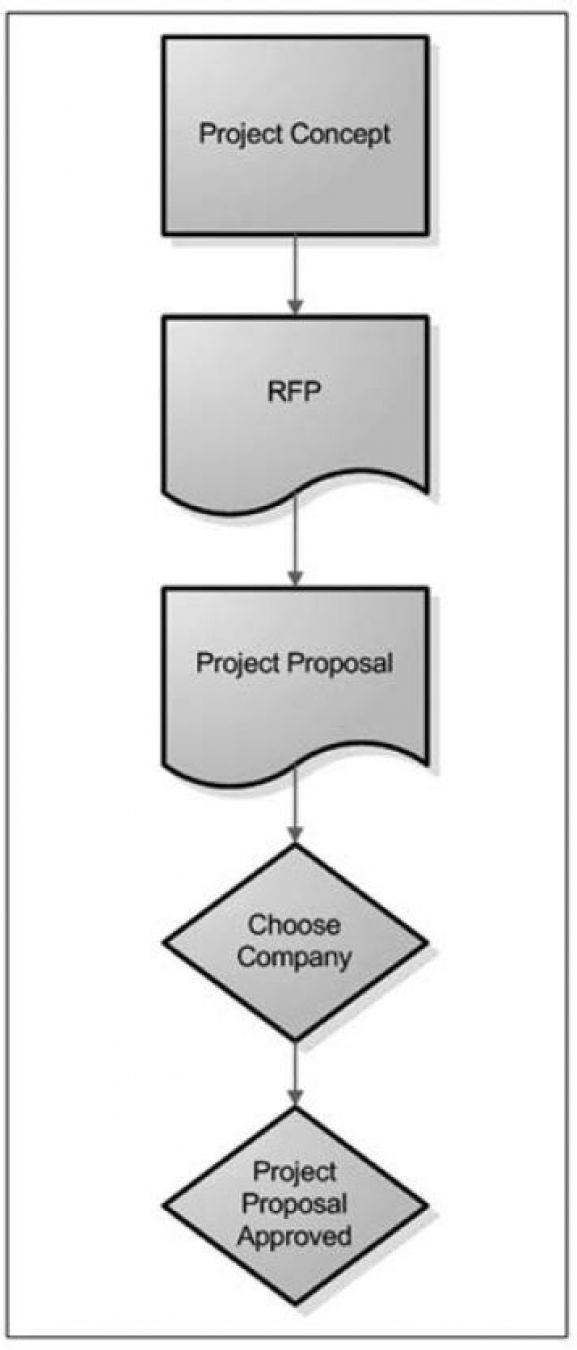Initiating a Project
By Colleen Garton and Erika McCulloch
Editor's Note: This article is excerpted from chapter 3 of Fundamentals of Technology Project Management, by Colleen Garton and Erika McCulloch.
Project management has changed significantly during the past 20 years. What used to be an optional role on projects is now a key role. It is hard to imagine that projects used to be launched with very little documentation or planning involved. Companies wasted huge sums of money working on projects without clear business, or technical, goals and objectives. The projects had little strategic or tactical planning and lacked the focused direction needed for long-term business success.
This rather haphazard approach to projects started to change after the burst of the dot.com bubble in the 1990s. Technology companies that survived had to make serious changes to their business and technology strategies to survive. Before investing in a new project, organizations need to take a good look at the bottom line. They want to see the Return on Investment (ROI), and they want to know exactly how long it will take to achieve the ROI. A product manager who thinks a new product will be profitable without any data to back up those assumptions is unlikely to get funding. Processes are in place to ensure adequate due diligence on project proposals. Executive-level management takes the time to review the proposed projects and their long-term goals and objectives. Initiatives are not being approved unless a justification for overall business success is prevalent. However, this does not mean that companies have stopped thinking “outside the box.” In fact, this kind of thinking is even more necessary in today’s marketplace. Differentiating oneself from the competition by coming up with creative and unique concepts, or ideas, is the key to initiating successful projects.
Once a Project Concept has been presented to executive management and accepted as a feasible idea, the project “proposer” will be tasked with creating a formal Project Proposal. The initial Project Proposal is a high-level plan that expands on the business case in the Project Concept and includes estimates for resources required to complete the project. Once the Project Proposal is complete, a decision will be made whether to go forward with the project, to change the scope of the project, or to terminate the project. If the Project Proposal is approved, the project will continue to the project definition stage of planning.
A huge amount of work needs to be accomplished in the planning stage of a project. So much so that it is often a wonder that the project got started at all! If you want your projects to be completed on time, within budget, and with high quality, and if you want them to be successful, you need to invest the appropriate amount of time and effort in planning. It is an area that is often overlooked or rushed through very quickly. The eagerness to get started actually coding or building something can overwhelm common sense and cause companies to skimp on this phase. The more thorough the planning, the fewer problems you will encounter during project creation. This will lead to higher productivity, higher team morale, and a higher-quality product.
The planning phase of a project includes the following steps:
- Project Concept
- Request for Proposal (RFP)
- Project Proposal
- Project Proposal Approval
- Project Definition
- Project Approval
- Project Plan
- Project Approach
- Project Kickoff
In this chapter, I cover the steps in the process from the initial concept through to the approval of the Project Proposal. The project initiation process is shown in the workflow diagram in Figure 3.1.
Figure 3.1: Project Initiation Process Workflow
The Project Concept and Proposal incorporate all the meetings, research, and reporting that is necessary to get the Project Proposal approved to continue to the next stage.
Next time - Project Concept. Want to learn more about project management best practices now? Pick up your own copy of Fundamentals of Technology Project Management, by Colleen Garton and Erika McCulloch - available and on sale at the MC Press Bookstore today!

















 Business users want new applications now. Market and regulatory pressures require faster application updates and delivery into production. Your IBM i developers may be approaching retirement, and you see no sure way to fill their positions with experienced developers. In addition, you may be caught between maintaining your existing applications and the uncertainty of moving to something new.
Business users want new applications now. Market and regulatory pressures require faster application updates and delivery into production. Your IBM i developers may be approaching retirement, and you see no sure way to fill their positions with experienced developers. In addition, you may be caught between maintaining your existing applications and the uncertainty of moving to something new. IT managers hoping to find new IBM i talent are discovering that the pool of experienced RPG programmers and operators or administrators with intimate knowledge of the operating system and the applications that run on it is small. This begs the question: How will you manage the platform that supports such a big part of your business? This guide offers strategies and software suggestions to help you plan IT staffing and resources and smooth the transition after your AS/400 talent retires. Read on to learn:
IT managers hoping to find new IBM i talent are discovering that the pool of experienced RPG programmers and operators or administrators with intimate knowledge of the operating system and the applications that run on it is small. This begs the question: How will you manage the platform that supports such a big part of your business? This guide offers strategies and software suggestions to help you plan IT staffing and resources and smooth the transition after your AS/400 talent retires. Read on to learn:
LATEST COMMENTS
MC Press Online